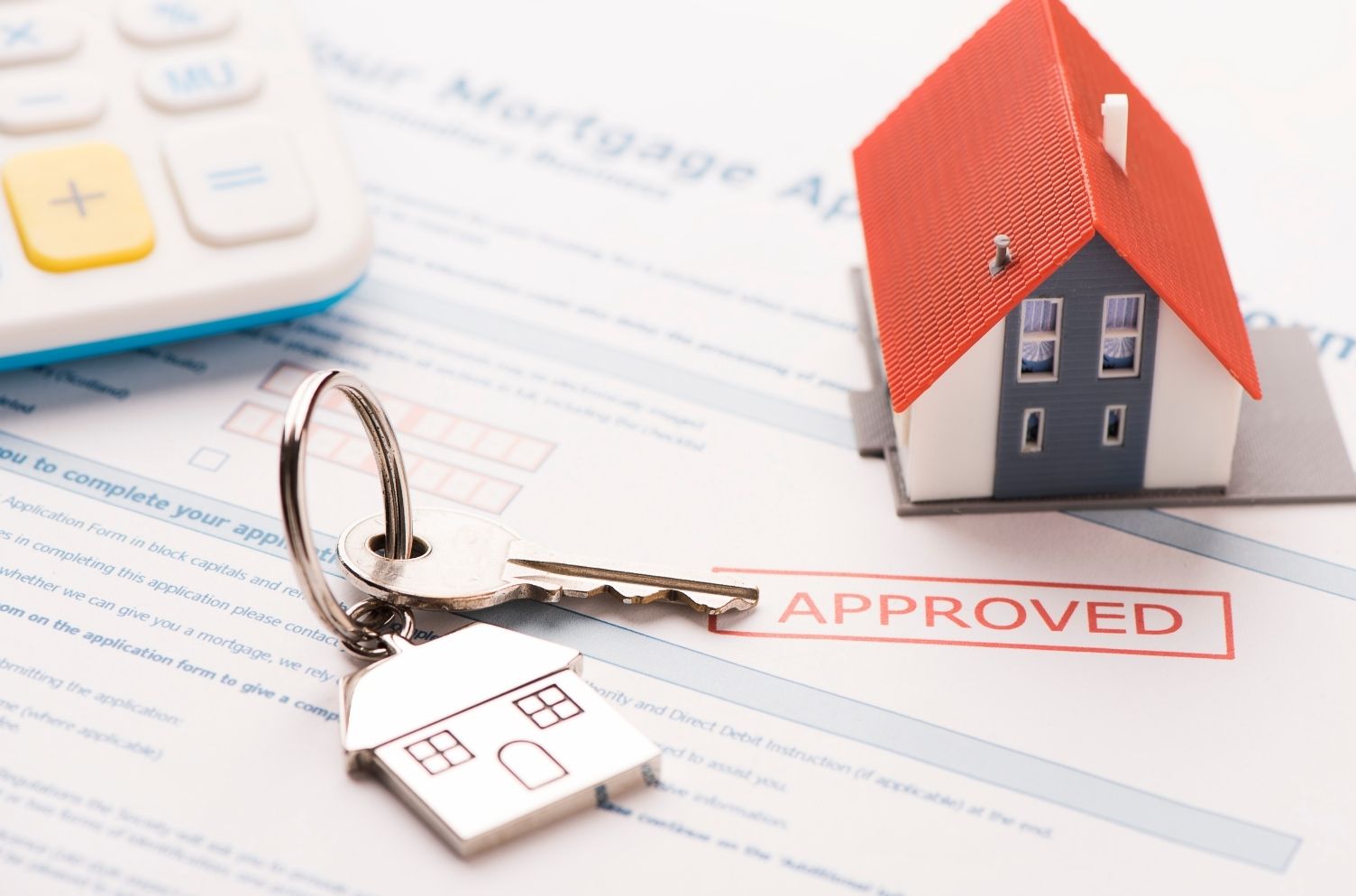4 Commercial Property Loans You Can Obtain With Bad Credit

Trying to get a loan for commercial property with bad credit can feel tough. Many think bad credit means no chances of borrowing, especially for big buys like properties. Yet, from what we've learned, that's not true.
Getting turned down because of past money mistakes is hard.
But here's some good news: having bad credit isn't the end for your dreams. There are still options out there. Some lenders offer bad credit mortgages because they believe in second chances and understand that sometimes life messes up our finances.
After looking around, we found four loan types that work well for people with less-than-perfect credit aiming to invest in commercial property. These include hard money loans, bridge loans, SBA loans, and private lender loans—designed to help you overcome financial hurdles.
Key Takeaways
-
You can get a loan for commercial property with bad credit through hard money loans, bridge loans, SBA loans, and private lender loans.
-
Hard money loans rely on the property's value rather than your credit score but come with higher interest rates and shorter repayment times.
-
The U.S. government backs SBA loans, so you're more likely to be approved even with a low credit score.
-
To improve your chances of getting a loan, pay bills promptly, save for a bigger deposit or join forces with someone who has good credit.
-
These options may cost more due to higher interest and carry risks, yet they offer a path to owning commercial property.
Understanding Bad Credit and Its Impact on Loan Eligibility
Bad credit makes us seem risky to lenders because of things like missing credit card payments, not repaying loans on time, or applying for many credits quickly. Each lender views bad credit in their own way, meaning reactions vary by lender.
Having bad credit often leads to higher interest rates and needing a larger deposit for a commercial property loan.
Being open about our financial history can improve our mortgage eligibility. Paying smaller bills, such as utility contracts diligently, can also make lenders view us more favourably.
Paying simple accounts on time demonstrates to lenders that we're improving.
Types of Commercial Property Loans for Bad Credit
We offer loans for buying commercial property, even if your credit history isn't strong. Our options include hard money loans, which rely on the property's value rather than your credit score, and bridge loans to manage immediate expenses as you arrange long-term financing.

Hard Money Loans
Hard money loans are useful for buying commercial property when your credit score is low. These loans, provided by private businesses or investors, prioritise the value of the property you're using as security over your credit history.
They have higher interest rates and shorter repayment periods compared to traditional loans. This makes them a good option if you need quick financing without the strict requirements of regular lenders.
Our experiences show these lenders require a clear understanding of the property's value and your plan for it. Since these loans are secured against the property, lenders set firm but fair terms for repayment.
For those with past financial issues blocking access to conventional funding, hard money loans offer a viable solution.
Bridge Loans
Bridge loans offer a quick solution for urgent money needs but come with higher interest rates due to their short-term nature. They can be crucial in certain situations, requiring about 20-25% of the property's value as a deposit.
It's essential to have all documents ready, like business plans and tax returns, to speed up the process. We learned from experience that being prepared makes things go faster.
SBA (Small Business Administration) Loans
SBA loans help people with bad credit. The Small Business Administration, a U.S. agency, supports these loans. This makes lenders more likely to loan money even with a low credit score.
These loans often have lower interest rates and longer repayment periods, helping those concerned about monthly payments.
When applying for an SBA loan, you must share your income and expenses. Thanks to government backing, getting approved is easier, even with a poor credit history. Now, let's look at private lender loans compared to SBA options.
Private Lender Loans
Private lenders frequently present more accommodating conditions than conventional banks, becoming a popular option for those with less-than-optimal credit ratings. Clever Mortgages links us with more than 30 lenders specialising in bad credit prepared to assess our situation despite prior financial difficulties.
They provide initial consultations at no cost but levy charges for organising mortgages or protected loans, assuring we are aware of the charges beforehand.
These lenders assess the comprehensive value of the property along with our business proposition rather than solely concentrating on our credit record. This method enhances our possibility of achieving a mortgage even when traditional street banks might refuse us because of poor credit ratings.
Opting for this route indicates collaborating with someone who recognises the potential in our proposals, rather than merely our historical financial missteps.
Tips for Securing a Commercial Property Loan With Bad Credit
Improving your credit score is essential for loan approval, especially with a poor credit history. Here's how:
- Pay bills on time and reduce debt to better your credit rating.
- Increase your deposit size to show commitment.
- Team up with someone who has a stronger credit score to enhance your application.
These actions can help overcome the hurdles bad credit presents.
Improve Your Credit Score
Signing up for a free Experian account lets us check our credit score. We see where we stand. Paying bills on time boosts this score, showing we manage money well.
Managing credit card and utility accounts also improves our scores. Fixing mistakes on our reports with lenders or Experian helps too.
A larger deposit can make a big difference as well.
Provide a Larger Deposit
Improving our credit score is smart. Another good step is to save for a larger deposit. This means paying more money upfront for the property. Mortgage lenders see this as less risky because it shows we can manage money well.
A bigger deposit improves our loan-to-value ratio too. This ratio compares the amount we need to borrow against what we've already paid. For bad credit mortgages, lenders often ask for a 20-25% deposit of the property value.
This helps us seem more reliable to lenders, despite past credit issues. Plus, with a larger deposit, we end up borrowing less and pay less interest over time.
Partner With a Co-Borrower
Teaming up with a co-borrower can improve our chances of getting a commercial property loan, especially if we have poor credit. A co-borrower could be a family member or friend who shares the responsibility of the loan with us.
Their good credit score and income can make lenders more likely to approve our loan application. This partnership means both are responsible for repayments, impacting both credit scores if payments are missed.
Working with a co-borrower can secure better loan terms, such as lower interest rates or reduced monthly repayments. Choosing a financially stable and trustworthy co-borrower is essential to avoid potential damage to our finances.
Adding a larger deposit also boosts our mortgage eligibility...
Check Your Mortgage Eligibility
Advantages and Risks of Commercial Property Loans for Bad Credit
Getting a commercial property loan with bad credit can offer business growth opportunities. However, these loans tend to have higher interest rates and stricter terms, posing risks to your financial stability if plans fail.

Potential Benefits
Loans for those with bad credit are achievable. A larger deposit or having a co-borrower can make lenders more open to approving. This strategy could lead to advantageous deals on commercial property loans.
Mortgage calculators allow us to understand what we can borrow, our monthly payments, and the total interest we will pay. Clever Mortgages offers access to a variety of mortgage products at special rates.
They give personalised advice suited to individual situations. For instance, they assisted Mr and Mrs H. in consolidating their debts into one manageable payment. Their support makes owning commercial property possible, even with poor credit history.
Key Risks to Consider
We need to discuss the risks of commercial property loans for bad credit. Higher interest rates and larger deposits increase borrowing costs. This situation often leads to financial strain.
Missed payments can result in losing your property. Plus, a rejected mortgage application can further damage your credit score. It complicates future borrowing attempts. Entering this type of loan requires careful planning ahead.
Conclusion
Having bad credit doesn't mean you can't get a loan for commercial property. There are several options such as hard money loans, bridge loans, SBA loans, and private lender loans that might work for you.
To improve your chances, consider raising your credit score or offering a bigger deposit. Though these choices may lead to paying more interest and taking on more risk, they also make it possible to buy commercial property.
The key is to choose the right option by staying well-informed.
FAQs
1. What is a bad credit mortgage?
A bad credit mortgage, also known as subprime mortgages or adverse credit mortgages, are loans designed for borrowers with poor credit history. These typically come with higher interest rates due to the perceived risk of defaulting by subprime lenders.
2. How does my credit history affect my mortgage eligibility?
Your mortgage eligibility largely depends on your past financial conduct and your current financial situation. Mortgage lenders analyse your income and outgoings, outstanding debts and any instances of missed payments in your credit report to determine loan eligibility.
3. Can I get a commercial property loan if I have defaulted before?
Yes, it's possible but challenging. You may need to seek help from a mortgage broker who specialises in helping those with poor or adverse credit histories secure loans like sub-prime mortgages.
4. Are there ways to improve my chances of getting approved for a commercial property loan despite having bad credit?
Definitely! One way is through improving your overall financial health - paying down debt consolidation or outstanding debts can boost your savings and show you're managing finances better now which might convince creditors about lending money despite previous defaults.
5. Will having a larger deposit increase my chances of securing a commercial property loan?
Absolutely! A larger deposit reduces the lender’s risk because it lowers the Loan-to-Value (LTV) ratio – that's good news for people with less-than-perfect scores on their credit reports!
6. Is there anything else I should be aware of when applying for these types of loans?
You must remember that while obtaining these types of secured loans could be an option, they often come at higher interest rates which means bigger monthly repayments so make sure this fits into your budget before proceeding.
Related Posts
Ask the Expert
Mortgage Brokers




_7779.jpg)